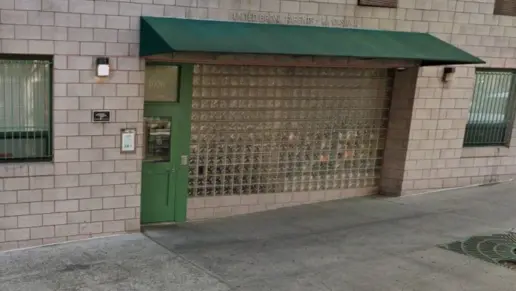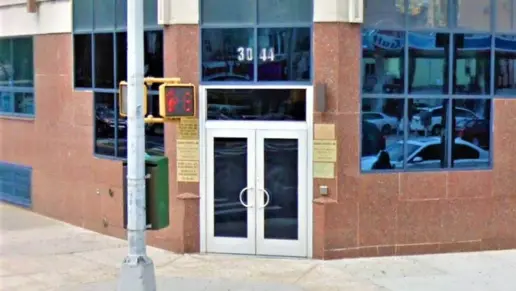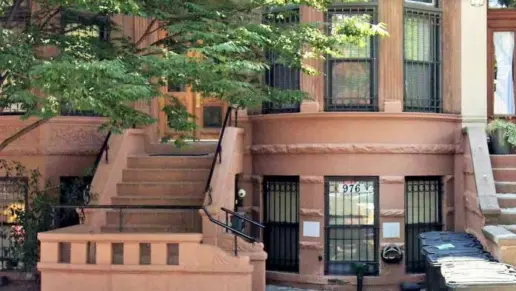About Addiction Care Help Center
For over 50 years, the Addictions Care Help Center has believed that your past should not steal your present. You'll find 'em located out in Albany, New York. Their comprehensive programs for drug and alcohol rehab include a residential treatment program that begins with stabilization services, which are available 24/7/365. Eligibility for the program requires a desire and motivation to seek help.
Rehabilitation services in the residential treatment program include medication management using FDA approved drugs to help reduce withdrawal symptoms and reduce cravings during ongoing treatment. Evidence based therapies help you explore healthy coping strategies and recovery skills that promote physical and mental health. They also offer reintegration services that help you to engage in an outpatient program and collaborate with your counselors to transition into everyday life.
This is also part of the Transitional Living Services Program for men who are in the later stages of recovery. The intensive outpatient program (IOP) provides individual and group counseling using a customized treatment plan based on a comprehensive assessment. You learn relapse prevention and life skills training and receive medication assisted treatments for alcohol and opioid use disorders.
Their Community Oriented Recovery Empowerment Program uses trauma informed, integrated person-centered treatment. They also offer peer support services from a certified recovery peer advocate who has had experience living through substance use issues and has received specialized training. If you’re under court orders, they have jail-based programs to impact those within the criminal justice system.
They accept many major health insurance providers such as Blue Cross Blue Shield, Beacon, and UnitedHealthcare. They also work closely with New York State Medicaid and will verify your insurance before beginning treatment.
Gallery
Other Forms of Payment
Private insurance refers to any kind of healthcare coverage that isn't from the state or federal government. This includes individual and family plans offered by an employer or purchased from the Insurance Marketplace. Every plan will have different requirements and out of pocket costs so be sure to get the full details before you start treatment.
Financial aid can take many forms. Centers may have grants or scholarships available to clients who meet eligibility requirements. Programs that receive SAMHSA grants may have financial aid available for those who need treatment as well. Grants and scholarships can help you pai for treatment without having to repay.
Medicaid is a state based program that helps lower-income individuals and families pay for healthcare. Medicaid covers addiction treatment so those enrolled can use their coverage to pay for rehab. When a program accepts Medicaid the client often pays very little or nothing out of their own pocket.
Medicare is a federal program that provides health insurance for those 65 and older. It also serves people under 65 with chronic and disabling health challenges. To use Medicare for addiction treatment you need to find a program that accepts Medicare and is in network with your plan. Out of pocket costs and preauthorization requirements vary, so always check with your provider.
Addiction Treatments
Levels of Care
Treatments
The goal of treatment for alcoholism is abstinence. Those with poor social support, poor motivation, or psychiatric disorders tend to relapse within a few years of treatment. For these people, success is measured by longer periods of abstinence, reduced use of alcohol, better health, and improved social functioning. Recovery and Maintenance are usually based on 12 step programs and AA meetings.
When you choose drug rehab in New York, you'll participate in a variety of treatments that are designed to help you live a drug-free lifestyle. Common methods of treatment include group, individual, and family counseling, medication management, nutrition, exercise, and management of co-occurring mental health disorders.
Many of those suffering from addiction also suffer from mental or emotional illnesses like schizophrenia, bipolar disorder, depression, or anxiety disorders. Rehab and other substance abuse facilities treating those with a dual diagnosis or co-occurring disorder administer psychiatric treatment to address the person's mental health issue in addition to drug and alcohol rehabilitation.
A combined mental health and substance abuse rehab has the staff and resources available to handle individuals with both mental health and substance abuse issues. It can be challenging to determine where a specific symptom stems from (a mental health issue or an issue related to substance abuse), so mental health and substance abuse professionals are helpful in detangling symptoms and keeping treatment on track.
Opioid rehabs specialize in supporting those recovering from opioid addiction. They treat those suffering from addiction to illegal opioids like heroin, as well as prescription drugs like oxycodone. These centers typically combine both physical as well as mental and emotional support to help stop addiction. Physical support often includes medical detox and subsequent medical support (including medication), and mental support includes in-depth therapy to address the underlying causes of addiction.
Programs


Clinical Services
Group therapy is any therapeutic work that happens in a group (not one-on-one). There are a number of different group therapy modalities, including support groups, experiential therapy, psycho-education, and more. Group therapy involves treatment as well as processing interaction between group members.
In individual therapy, a patient meets one-on-one with a trained psychologist or counselor. Therapy is a pivotal part of effective substance abuse treatment, as it often covers root causes of addiction, including challenges faced by the patient in their social, family, and work/school life.
The Addiction and Recovery Family Support Navigator, funded through Albany County by the New York State Office of Alcoholism and Substance Abuse Services (OASAS), exists to assist families whose loved ones are in crisis by being the person that they can turn to for answers on what is happening and what the next steps are. ACCA’s Addiction and Recovery Family Support Navigator will guide, educate and support individuals and families in Albany County struggling with addiction issues by assisting them in communicating their loved ones history and current needs appropriately and guiding them through the addiction treatment and recovery process.
Life skills trainings involve all the skills a person must have in order to function successfully in the world. These include time management, career guidance, money management, and effective communication. Truly successful addiction recovery is based on the ability to not only live substance-free, but to thrive. Life skills teaches the practical necessities of functioning in society, which sets clients up for success in life, and therefore sobriety.
Amenities
-
Residential Setting
-
Private Setting
-
Private Rooms
Accreditations

The Substance Abuse and Mental Health Services Administration (SAMHSA) is a branch of the U.S. Department of Health and Human Services. Established in 1992 by congress, SAMHSA's mission is to reduce the impact of substance abuse and mental illness on American's communities.
SAMHSA Listed: Yes

State Licenses are permits issued by government agencies that allow rehab organizations to conduct business legally within a certain geographical area. Typically, the kind of program a rehab facility offers, along with its physical location, determines which licenses are required to operate legally.
State License: New York
License Number: 35090
Contact Information
90 McCarty Avenue
Albany NY, 12202


